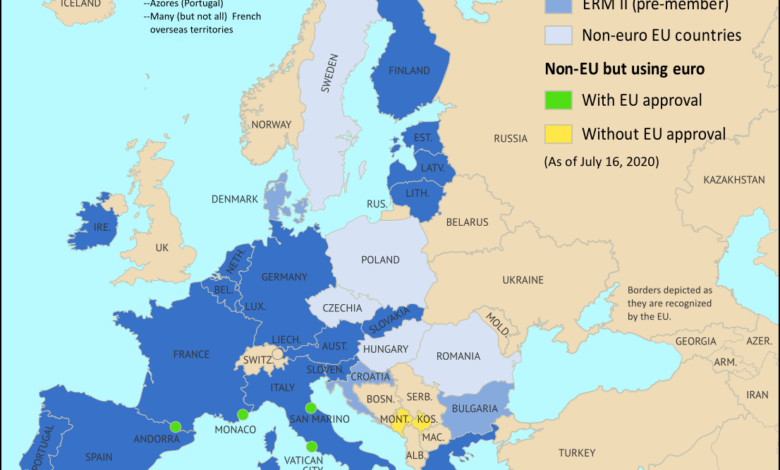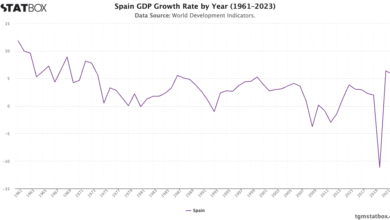Bulgaria Eurozone Membership: A Step Towards Economic Growth

Bulgaria is poised to join the eurozone, marking a significant step towards euro adoption that will expand the bloc from 20 to 21 members. Both the European Commission and the European Central Bank have affirmed that Bulgaria meets the stringent criteria needed to embrace the EU currency, making 2026 a landmark year for the nation. This momentous decision has been celebrated by European Commission President Ursula von der Leyen, who emphasizes that Bulgaria’s entry will foster increased investment and trade within the euro area. As the Bulgarian economy prepares for this transition, citizens are split in their views, with public opinion reflecting a mixture of enthusiasm and apprehension towards this major economic shift. The journey of Bulgaria towards eurozone membership is not just a pivotal point for the nation itself but also represents a key chapter in the ongoing narrative of eurozone expansion within European Union news.
As Bulgaria takes steps towards eurozone membership, it embarks on an important journey toward adopting the Euro as its official currency. This prospective shift will not only enhance Bulgaria’s economic integration with other European nations but also transforms the landscape of the Eurozone by introducing a new member. The approval process and assessments undertaken by the European Central Bank and the European Commission highlight Bulgaria’s commitment to meeting the necessary criteria for this transition. Such developments are pivotal not only for Bulgaria but also for the broader context of EU currency adoption. The mixed sentiments among the Bulgarian populace reveal the complexities involved in this significant economic milestone.
Bulgaria’s Road to Eurozone Membership
Bulgaria’s recent approval to join the eurozone marks a significant milestone for the nation and the European Union. With this decision, Bulgaria is set to become the 21st member of the Eurozone, effectively enhancing the region’s financial stability and unity. As part of this process, the European Commission and the European Central Bank have confirmed that Bulgaria meets the essential convergence criteria necessary for the adoption of the euro, including factors like price stability and government debt management.
The move towards euro adoption is seen as a pivotal moment for Bulgaria’s economy, which has historically been characterized by a robust commitment to maintaining macroeconomic stability. The transition from the Bulgarian lev to the euro is anticipated to bolster investor confidence and facilitate trade with other eurozone nations. Moreover, economists suggest that joining the eurozone could lead to increased foreign direct investment, further driving economic growth and development.
Implications of Eurozone Expansion for Bulgaria
The expansion of the eurozone to include Bulgaria brings numerous implications for both the country and the EU as a whole. For Bulgaria, joining the eurozone means the relinquishment of the Bulgarian lev, but it also opens up new avenues for economic partnerships and trade with existing eurozone countries. The European Commission’s assessment predicts that this integration will foster greater stability and prosperity for the Bulgarian populace, which is particularly crucial in the wake of economic challenges faced in recent years.
At an EU level, Bulgaria’s accession signifies a continued commitment to European integration, reinforcing the significance of the Eurozone as a unified economic area. The successful adoption of the euro by Bulgaria could serve as a blueprint for other nations in the region looking to join the eurozone, thereby enhancing the bloc’s collective economic stature and cohesiveness. As the EU moves forward, Bulgaria’s experience may play a vital role in discussions surrounding future eurozone expansion and related economic policies.
Criteria for Joining the Eurozone
For any nation to join the eurozone, it must meet specific economic criteria known as the Maastricht criteria. These requirements include price stability, a stable exchange rate, sound government finances, and convergence of interest rates. Bulgaria’s current inflation rate, which stands at 2.8%, indicates its readiness to meet the conditions for euro adoption. Additionally, the country has made significant strides in stabilizing its economy and ensuring government debt does not exceed prescribed limits.
The assessment of Bulgaria’s readiness for euro adoption underscores the importance of sound economic governance and policy implementation. The European Commission and the European Central Bank have endorsed Bulgaria’s progress, signaling confidence in the country’s financial systems and institutions. As Bulgaria gears up to adopt the euro in January 2026, the continued adherence to these criteria will be critical in ensuring a smooth transition and long-term economic sustainability.
Public Sentiment on Euro Adoption in Bulgaria
Public opinion regarding Bulgaria’s transition to the euro is mixed, reflecting the diverse perspectives of its citizens. Recent surveys suggest that nearly half of the population, about 49%, support joining the eurozone, while others express apprehensions about relinquishing the lev and the implications such a move might have on daily life. This division in sentiment is further complicated by political dynamics within the country, as various parties and leaders hold differing views on the necessity and timing of euro adoption.
The mixed public sentiment highlights the need for effective communication and information dissemination by the government regarding the benefits of joining the eurozone. Advocates argue that euro adoption will stabilize the economy and increase investor confidence, while opponents emphasize the risks associated with eurozone membership, including potential inflation and loss of monetary sovereignty. As Bulgaria approaches its scheduled euro adoption date, fostering a better understanding of the implications and advantages will be essential for garnering broader support among its citizens.
The Role of the European Union in Supporting Bulgaria’s Eurozone Entry
The European Union plays a pivotal role in supporting Bulgaria’s entry into the eurozone. Through various initiatives and guidelines, the EU has provided frameworks for accession that help candidate countries meet necessary economic and political criteria. In the case of Bulgaria, the EU’s consistent engagement and rigorous assessments have been crucial in facilitating this journey towards euro adoption, ensuring that the country’s economic policies are aligned with those of the Eurozone.
Additionally, the EU’s financial and technical support has equipped Bulgaria with the tools needed to fortify its economic stability. By adhering to guidelines set forth by the European Commission and the European Central Bank, Bulgaria is working towards meeting the stringent requirements for euro membership. The collaborative relationship between Bulgaria and the EU not only underscores the importance of collective economic governance but also showcases the potential benefits of euro adoption for both the country and the wider European community.
Economic Benefits of Joining the Eurozone for Bulgaria
Joining the Eurozone is expected to yield substantial economic benefits for Bulgaria, primarily through enhanced trade and investment opportunities. By adopting the euro, Bulgarian businesses will have easier access to eurozone markets, reducing currency exchange fees and promoting cross-border trade. This increased economic integration can attract foreign direct investment, leading to job creation and technological advancements within the country.
Furthermore, euro adoption is likely to enhance financial stability and transparency within Bulgaria’s economy. With the euro as its currency, Bulgaria could see reduced interest rates and improved credit ratings, which are essential for fostering a healthy business environment. In the long-term, these advantages could transform Bulgaria into a more competitive player on the European stage, promoting sustainable economic growth and improving the standard of living for its citizens.
Political Considerations Surrounding Eurozone Membership
The political landscape of Bulgaria regarding eurozone membership is complex and multifaceted. Some political factions and leaders express staunch opposition to adopting the euro, citing concerns about national sovereignty and potential adverse effects on the local economy. This opposition must be navigated carefully as the government aims to unify efforts towards successful euro adoption, ensuring that diverse viewpoints within the political spectrum are acknowledged and addressed.
Conversely, proponents of euro adoption highlight the historical commitment Bulgaria has made since joining the European Union in 2007. They argue that euro membership not only aligns Bulgaria more closely with the EU framework but also enhances the country’s political leverage within European conversations. As the political discourse evolves leading up to 2026, it will be essential for the Bulgarian government to communicate the intended economic benefits of joining the eurozone effectively.
The Future of Bulgaria’s Economy Post-Euro Adoption
The future of Bulgaria’s economy post-euro adoption is subject to various speculative analyses. Many economists believe that embracing the euro will lead to increased economic confidence—potentially stimulating growth in sectors such as tourism, manufacturing, and technology. The removal of currency exchange limits may allow businesses to interact freely with eurozone partners, creating a more seamless economic environment.
While challenges remain, including addressing public concerns about inflation and potential risks associated with currency changes, the overall outlook is optimistic. If managed correctly, Bulgaria’s eurozone membership could lay the groundwork for improved macroeconomic stability, fostering a climate conducive to long-term investments and fostering innovation. This transformative phase is pivotal not just for Romania’s economy, but also for its position within the broader European Union.
Frequently Asked Questions
What are the implications of Bulgaria joining the eurozone for the economy?
Bulgaria joining the eurozone is expected to enhance economic stability and increase trade with euro area partners. With the adoption of the euro as the official currency, Bulgaria’s economy may see increased investment opportunities, leading to greater prosperity for its citizens.
When is Bulgaria expected to adopt the euro following its approval for eurozone membership?
Bulgaria is set to adopt the euro on January 1, 2026, becoming the 21st member of the eurozone. This date marks a significant step in Bulgaria’s journey toward EU currency adoption after meeting required economic criteria.
What criteria did Bulgaria meet to qualify for eurozone membership?
To qualify for eurozone membership, Bulgaria demonstrated compliance with various criteria including price stability, a government deficit limit, a controlled debt ratio, stable exchange rates, and a commitment to central bank independence, ultimately receiving approval from the European Central Bank.
How does public opinion in Bulgaria reflect the country’s decision to join the eurozone?
Public opinion on Bulgaria joining the eurozone is divided. A survey indicated that about 49% of Bulgarians support euro adoption. Political figures also express varied opinions, with some nationalist parties and the president opposing the move, while the Prime Minister advocates for it.
What steps remain before Bulgaria can fully join the eurozone?
Before Bulgaria can fully join the eurozone, it awaits final approval from the EU Council following the European Commission’s proposals for a council decision and regulation concerning its euro adoption, ensuring all legal and procedural frameworks are in place.
How will Bulgaria’s entry into the eurozone affect its existing currency, the Bulgarian lev?
Upon joining the eurozone, Bulgaria will replace the Bulgarian lev with the euro, officially ending its previous currency. The exchange rate is set with one euro equal to 1.96 lev, a rate established during Bulgaria’s entry into the currency board.
What is the significance of Bulgaria’s eurozone membership for EU currency expansion?
Bulgaria’s eurozone membership marks a crucial step in the expansion of the eurozone, increasing its membership from 20 to 21 countries. This signifies ongoing integration within the European Union and demonstrates confidence in Bulgaria’s economic future.
What role does the European Central Bank play in Bulgaria’s eurozone accession?
The European Central Bank plays a pivotal role in assessing Bulgaria’s readiness to join the eurozone, as seen in its approval of the country’s criteria fulfillment, facilitating Bulgaria’s transition to adopting the euro as part of its economic strategy.
| Key Points | ||
|---|---|---|
| Bulgaria has received approval to join the eurozone. | The country’s accession would increase the bloc from 20 to 21 members. | Nations must meet several criteria, including price stability, to adopt the euro. |
Summary
Bulgaria eurozone membership has gained significant momentum with the recent approval from the European Central Bank and the European Commission. This historic decision signals Bulgaria’s readiness to adopt the euro by January 1, 2026, marking a pivotal moment in its economic journey. The move is expected to enhance economic stability, promote trade, and attract investments in Bulgaria, benefiting its citizens. However, public sentiment remains divided, reflecting the complexities of economic integration within the EU. As the final approvals are awaited, this marks a crucial step towards a stronger Bulgarian economy in the eurozone.



